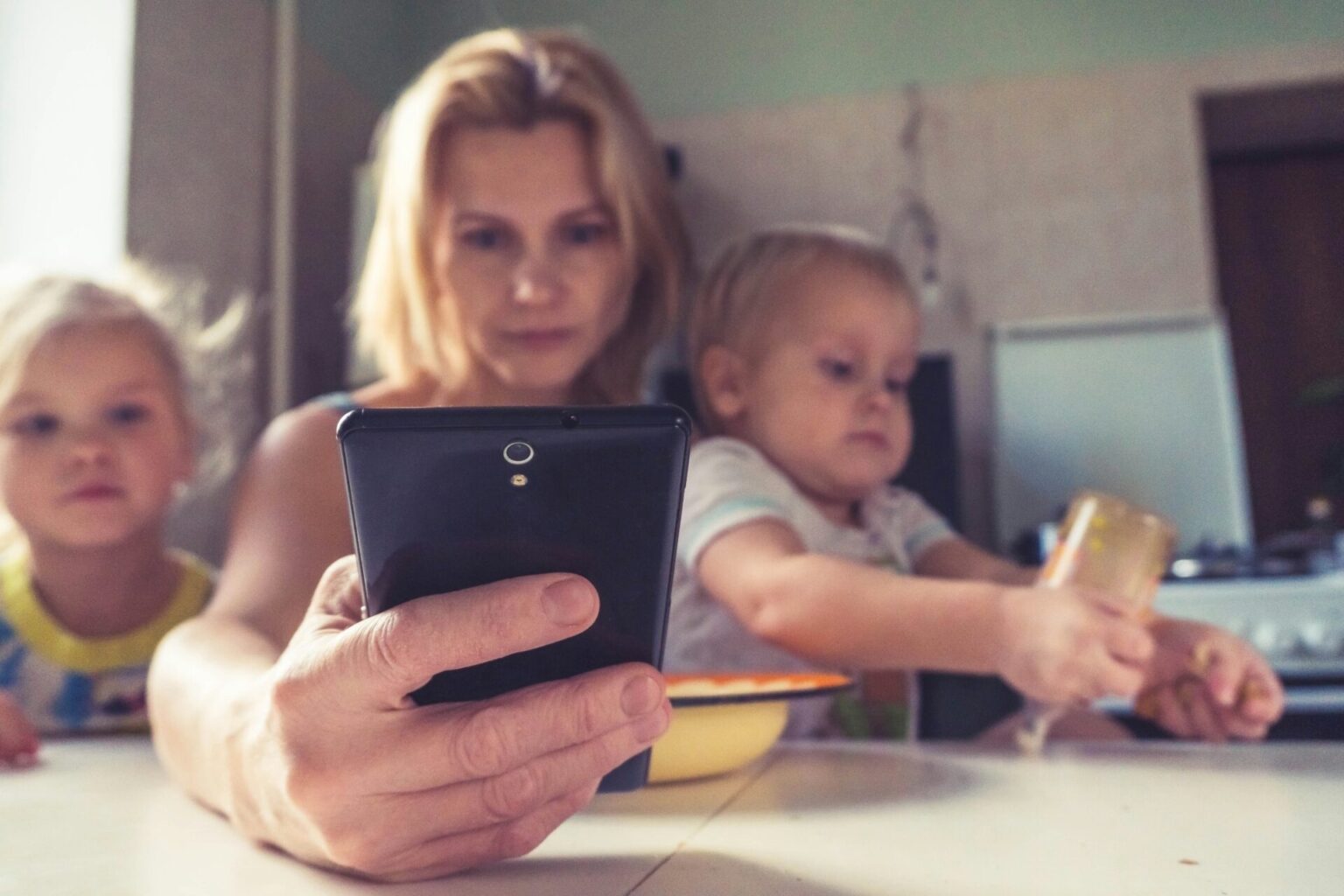The short answer is yes. AI can help make you a better parent by offering a sounding board, organizing tasks, refining communication and more. But it’s no replacement for your gut instincts. Read on to learn more.
Few things have been as culturally significant in the past few years as artificial intelligence. As a writer—or to go a step further, an artist whose medium is words—that’s hard for me to type. Like others in my field, I worry every day that my life’s work can be replaced with a subscription to a decent AI service. I’ve seen how AI reshapes a narrative and removes the creative, human aspects of storytelling. It freaks me out. I’m not gonna lie. And in the beginning, I was dead set against it.
But then I worried about becoming a dinosaur. Simply put, I know that if you refuse to adapt and try new things, you can get left behind. As a self-employed person in a creative field, that is a death sentence. With that in mind, I’ve started to learn to work in tandem with AI, so that I know my way around a chatbot if a client requests that I integrate AI into a project. I like that I can ask for thought starters for a story headline, or in the absence of an editor, I can get ChatGPT to give me suggestions for how to make a story better. A colleague of mine described AI as a “mediocre intern,” which made me laugh—but it’s kinda true. It’s not as talented or experienced as any of the writers I’ve worked with over the years, but it has its moments of showing value. It’s a good tool, if you learn how to incorporate it in the right way.
Keep that in mind when you read the next statement, so you don’t fall off your chair: Knowing that it’s a tool, and not a replacement for real human thought, I think there’s room for AI in everyday life, too. I even think AI can help make you a better parent. Here’s are some of the reasons why:
AI is an Unbiased Sounding Board
You know what happens when you ask a friend or relative for their opinion on a parenting decision. You might get some good advice, depending on who you’re talking to, but you may also get a decent dose of judgement alongside.
So, instead, ask ChatGPT what they think the next time you’re up against a parenting conundrum. It will gather all of the information available to it (which is THE ENTIRE INTERNET) and answer just the question you asked. You can even ask it follow-up questions to work through your thought process. And there’s not one snarky comment in the exchange. (Well, at least for now. There is some concern about AI becoming sentient, but that’s a worry for another day…)
AI Can Help When You’re Out of Answers
A friend of mine had tried everything when it came to potty training and was completely out of patience. Her daughter just wasn’t having it. My friend had tried the pants-less weekend method, the feral outdoor method, the put-her-on-the-potty every hour method. Nothing worked. I advised her to give it a little bit of time, that maybe her kiddo just wasn’t ready, but kindergarten was breathing down her neck. So she asked ChatGPT. She told the bot what she had already tried and asked it to spit out a simple two-week plan. She asked it a few more questions to refine the approach, but then committed to sticking with it. I won’t say it was flawless (it definitely wasn’t and she had to tweak things along the way) and my friend’s dedication likely played a part, but her daughter was (mostly) potty-trained by the first day of school a few months later.
The moral of the story: When you don’t know where to go next, maybe see what AI has to say.
AI Can Make Household Upkeep Easier
Okay, it’s not cleaning your bathroom but it can help you with organization. If you struggle to prioritize and make to-do lists, ask AI to help. Of course you have to feed it the task information, but it will help to sift through your chores to make things seem more manageable.
It can also help you to meal plan, create a budget or plan a vacation. No joke. The more information you give it, the more effective it can be. Remember, it’s you at the helm—to make the tool work best for you, you have to tell it what it needs to know. For example, don’t just ask it to create a seven-day meal plan. Tell it what your family likes, when there are extracurricular activities, what equipment you have on hand, etc. When you add detail to your requests, you’re more likely to get what you need. Then, once you have a meal plan you’re happy with, you can actually ask it to create a grocery list for you!
AI Can Help with Communication
I can’t tell you the number of texts I’ve drafted in my Notes app before actually sending them, to make sure I’m wording sensitive remarks carefully. I have a thirteen-year-old—she can read into the tiniest details when she’s upset. The other day, she sent me kind of a cranky text on her way home from school about not wanting to do her homework right away. I started to draft a hot-headed mom response, and then thought twice and actually asked ChatGPT how to tone down my text and make it more constructive. I was surprised by how it softened the language. It went too soft at first, so I asked it to pull back a little, and it totally worked. I of course tweaked it to sound like me, but I was grateful for the quick gut check.
AI Can Help with Research and Resources
Here’s the most important thing to know about AI: It isn’t always accurate. It doesn’t fact-check itself, and it can pull very dated information. I’ve even had it randomly make stuff up. So you do have to be willing to confirm any information it gives you.
That said, it can get you started in a big way if you need to research…well, anything. Looking for summer camps near you? Ask AI. Need a list of daycares that accepts infants? Ask AI. Looking for private swimming lessons? Ask AI. Again, you can’t outright trust what it tells you, but it will give you a pretty decent jumping off point.
But Remember…AI Isn’t a Replacement for Gut Instinct or Professional Help
As I said at the beginning of the article, AI is a tool. And used appropriately, it can make a lot of things easier for you. Does this make you a better parent? Probably. It has the potential to provide feedback, cut the time it takes to tackle mundane tasks, give you new ideas, do research for you, even adjust how you approach your hormonal teenager, in my case…
But it’s no replacement for your instincts.
You know your children and your family better than anyone (or anything, in the case of artificial intelligence). AI is going to give you a one-size-fits-all answer for everything, because that’s all it knows how to do. Sure, you can help it to refine the answers, but only you know what will work or be effective where your kids are concerned. Get ideas, gather information, ask for a better word or sentence…but don’t rely on it for true decision making.
And even more importantly, if you’re ever concerned about your child’s physical or mental well-being, skip asking ChatGPT. Go right to your family health care team or other real-life community resources for help. Remember—It’s just a tool.










